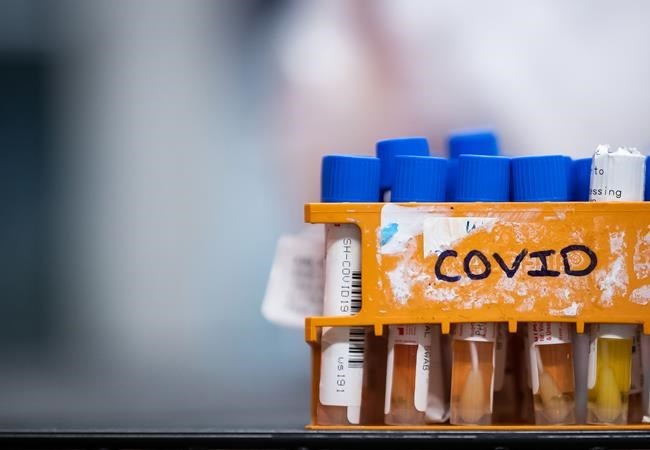OTTAWA — The union for federal correctional officers says four prisons in Quebec are "very close" to experiencing staff shortages, as more workers test positive for COVID-19.
"We're very close to it but we're not there yet. And I hope we won't go there," said Mario Guilmette, Quebec region vice-president of the Union of Canadian Correctional Officers.
Guilmette has said Correctional Service Canada is working on a protocol to be used if the province's federal prisons hit staffing shortages. The protocol would mean workers who are considered close contacts of someone who tested positive for COVID-19 may be asked to come back to work after isolating for eight days instead of 10.
The union said the four Quebec prisons at risk of staff shortages are La Macaza Institution, Donnacona Institution, Joliette Institution for Women and the Regional Reception Centre.
Correctional Service spokeswoman Marie Pier Lecuyer said 472 staff across Canada had tested positive for the coronavirus as of Thursday, up from 248 workers on Dec. 31.
Jeffrey Wilkins, president of the union, said in a statement Thursday that the latest numbers show that 443 staff across the country are currently positive, with "a substantial number" of these cases being correctional officers.
He said the union's membership has made "unprecedented sacrifices" and has seen a "continued decline in morale," given the drastic change in working conditions.
There were 218 cases active among inmates in federal prisons as of Wednesday, up from 107 on Dec. 31.
The service said in a statement Thursday that the Federal Training Centre, a multi-level security institution in Quebec, is reporting an outbreak of COVID-19 with 19 staff and 14 inmates infected.
Quebec's provincial detention centres as of Wednesday had 193 active cases among staff and 94 among inmates, according to the provincial government's website.
Lecuyer said staffing levels at federal institutions in the Quebec region are currently "adequate" to ensure safe operations.
The correctional service has not brought any staff who tested positive back to work until they are fully recovered, but has a protocol in place to return staff to the workplace if needed to maintain "critical public safety services," said Lecuyer.
The protocol focuses on returning asymptomatic staff who have completed the majority of their 10-day isolation period, combined with ongoing rapid testing and additional work isolation measures, she said.
She said other contingency plans are in place to address staffing levels, such as approving staff overtime and having managers replace correctional officers as needed.
Wilkins said that when staff shortages occur as a result of mandatory quarantines, staff have faced "unprecedented amounts of forced overtime," which has had a negative impact on mental health and contributes to burnout.
The service has reported outbreaks at 16 federal prisons since the beginning of December, when the Omicron variant first took hold in the country.
By comparison, the agency reported outbreaks at 12 institutions over the previous six months.
This report by The Canadian Press was first published Jan. 6, 2022.
———
This story was produced with the financial assistance of the Facebook and Canadian Press News Fellowship.
Erika Ibrahim, The Canadian Press




